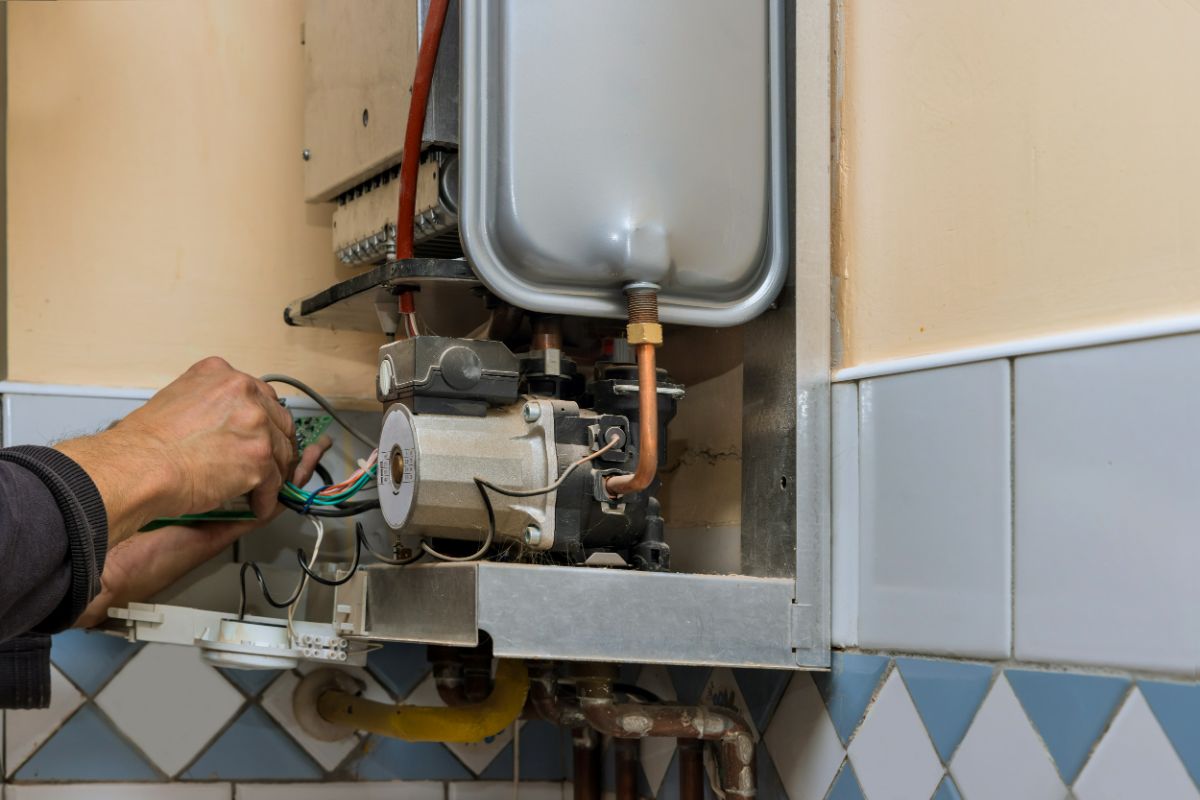Step-by-Step Steps to Caring for Your Home's Hot Water SystemEssential Guidance on Maintaining Your Home's Hot Water SystemEasy Methods to Maintain Your Home's Hot Water System Properly
Step-by-Step Steps to Caring for Your Home's Hot Water SystemEssential Guidance on Maintaining Your Home's Hot Water SystemEasy Methods to Maintain Your Home's Hot Water System Properly
Blog Article
Were you trying to locate ideas on What Kind of Maintenance Do Water Heaters Need??

Hot water is vital for everyday convenience, whether it's for a refreshing shower or cleaning recipes. To ensure your hot water system runs effectively and lasts much longer, routine upkeep is key. This post gives useful suggestions and insights on exactly how to keep your home's hot water system to avoid interruptions and expensive fixings.
Introduction
Maintaining your home's warm water system could appear difficult, yet with a couple of straightforward steps, you can ensure it runs efficiently for years to come. This guide covers everything from understanding your hot water system to DIY upkeep tips and understanding when to call professional assistance.
Relevance of Maintaining Your Hot Water System
Regular maintenance not only expands the life-span of your warm water system yet additionally guarantees it runs effectively. Ignoring maintenance can result in decreased efficiency, greater power expenses, and even premature failure of the system.
Signs Your Warm Water System Needs Maintenance
Recognizing when your hot water system requires attention can prevent major issues. Keep an eye out for indications such as inconsistent water temperature, strange sounds from the heating unit, or rustic water.
Flushing the Hot Water Heater
Purging your water heater removes debris build-up, enhancing efficiency and lengthening its life.
Monitoring and Replacing Anode Rods
Anode poles stop rust inside the tank. Evaluating and changing them when worn out is critical.
Facility Problems Requiring Specialist Help
Instances include significant leakages, electrical troubles, or if your water heater is consistently underperforming.
Regular Professional Upkeep Conveniences
Specialist upkeep can include comprehensive evaluations, tune-ups, and ensuring conformity with security standards.
Evaluating and Changing Temperature Level Setups
Adjusting the temperature level settings guarantees optimal performance and safety and security.
DIY Tips for Upkeep
You can carry out numerous maintenance jobs on your own to keep your warm water system in top condition.
Looking for Leaks
On a regular basis examine pipelines and links for leakages, as these can cause water damage and greater bills.
Recognizing Your Warm Water System
Before diving right into maintenance tasks, it's practical to understand the fundamental components of your warm water system. Typically, this includes the hot water heater itself, pipes, anode rods, and temperature level controls.
Month-to-month Maintenance Tasks
Routine month-to-month checks can aid catch minor concerns prior to they escalate.
Checking Stress Relief Valves
Evaluating the stress safety valve ensures it functions properly and protects against too much pressure buildup.
Protecting Pipelines
Shielding hot water pipes decreases warmth loss and can save power.
When to Call a Professional
While DIY upkeep is advantageous, some concerns call for specialist proficiency.
Final thought
Normal upkeep of your home's warm water system is essential for efficiency, longevity, and cost savings. By complying with these suggestions and understanding when to look for specialist aid, you can make certain a dependable supply of hot water without unexpected disruptions.
How to Maintain an Instant Hot Water Heater
Before tinkering with your hot water heater, make sure that it’s not powered on. You also have to turn off the main circuit breaker and shut off the main gas line to prevent accidents. Also turn off the water valves connected to your unit to prevent water from flowing into and out of the appliance. 2. When you’re done, you have to detach the purge valves’ caps. These look like the letter “T” and are situated on either side of the water valves. Doing so will release any pressure that has accumulated inside the valves while at the same time avoid hot water from shooting out and burning your skin. 3. When the purge valves’ caps are removed, you have to connect your hosing lines to the valves. Your unit should have come with three hoses but if it didn’t, you can purchase these things from any hardware or home repair shops. You can also get them from retail stores that sell water heating systems. Read the user’s manual and follow it to complete this task properly. When the hosing lines are connected, open the purge port’s valves. 4. You should never use harsh chemical cleaners or solutions when cleaning your unit. Make use of white vinegar instead. It should be undiluted and you’ll probably use about 2 gallons. 5. Now flush your water heater. This task should probably take about 40 minutes. We can’t give you specific directions for this because the procedure is carried out depending on the type, model and brand of your heater. With that being said, refer to the user’s manual. 6. When you’re done draining the unit, you have to turn off the purge port valves again. Remove the hosing lines that you earlier installed on each of the water valves. Put the valve caps (purge port) back in their respective places and be very careful so as not to damage the rubber discs that are found inside these caps. 7. Now that everything’s back in place, check your user’s manual again to find out how to reactivate your water heating system. 8. Once it is working, turn one of your hot water faucets on just to let air pass through the heater’s water supply pipes. Leave the tap on until water flows smoothly out of it. https://www.orrplumbing.com/blog/2014/september/how-to-maintain-an-instant-hot-water-heater/

I ran across that post about Tips on Maintaining a Water Heater while surfing around the internet. Appreciated our piece of writing? Please share it. Let another person check it out. Thanks a lot for being here. Please stop by our blog back soon.
Call Today Report this page